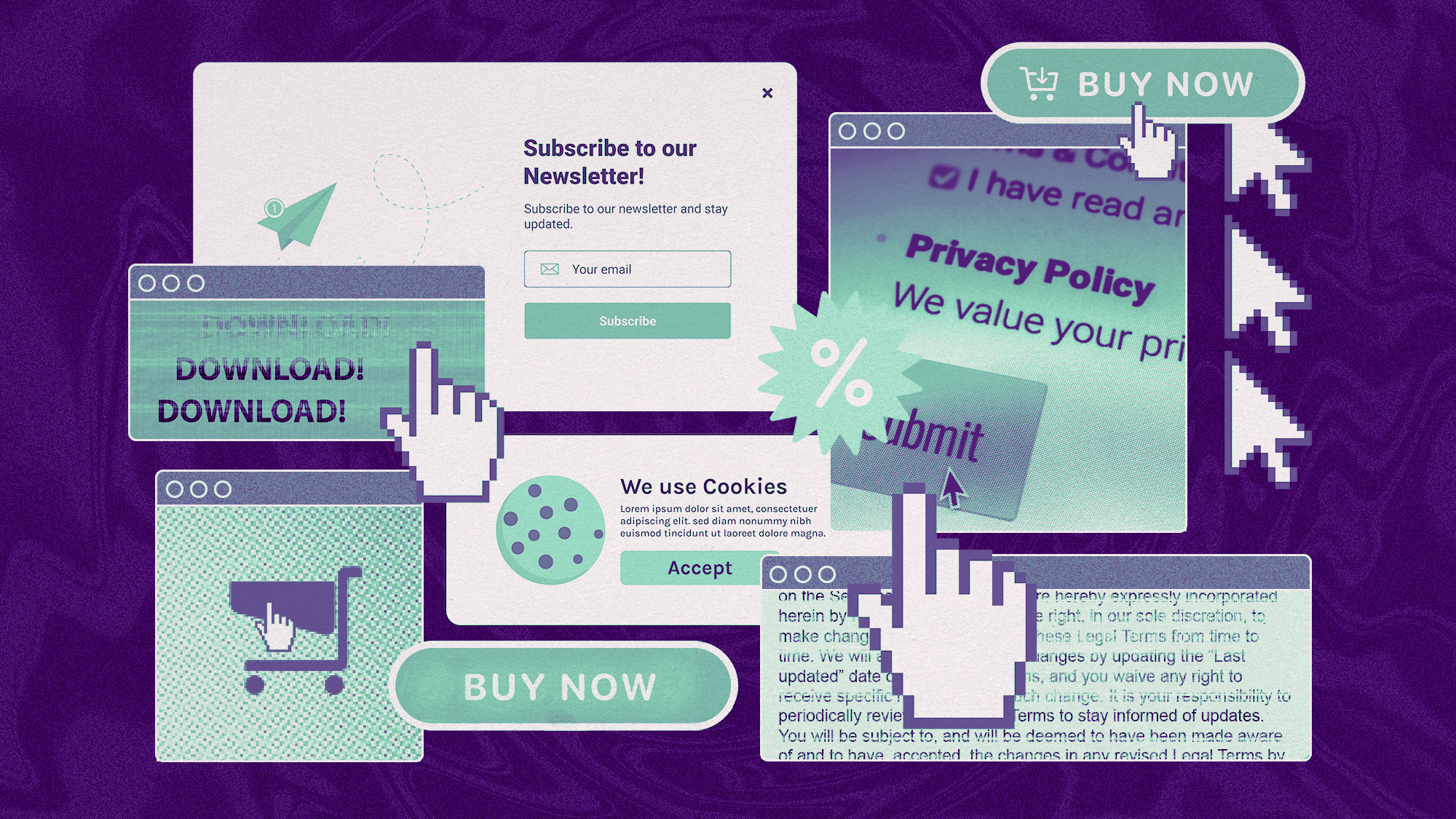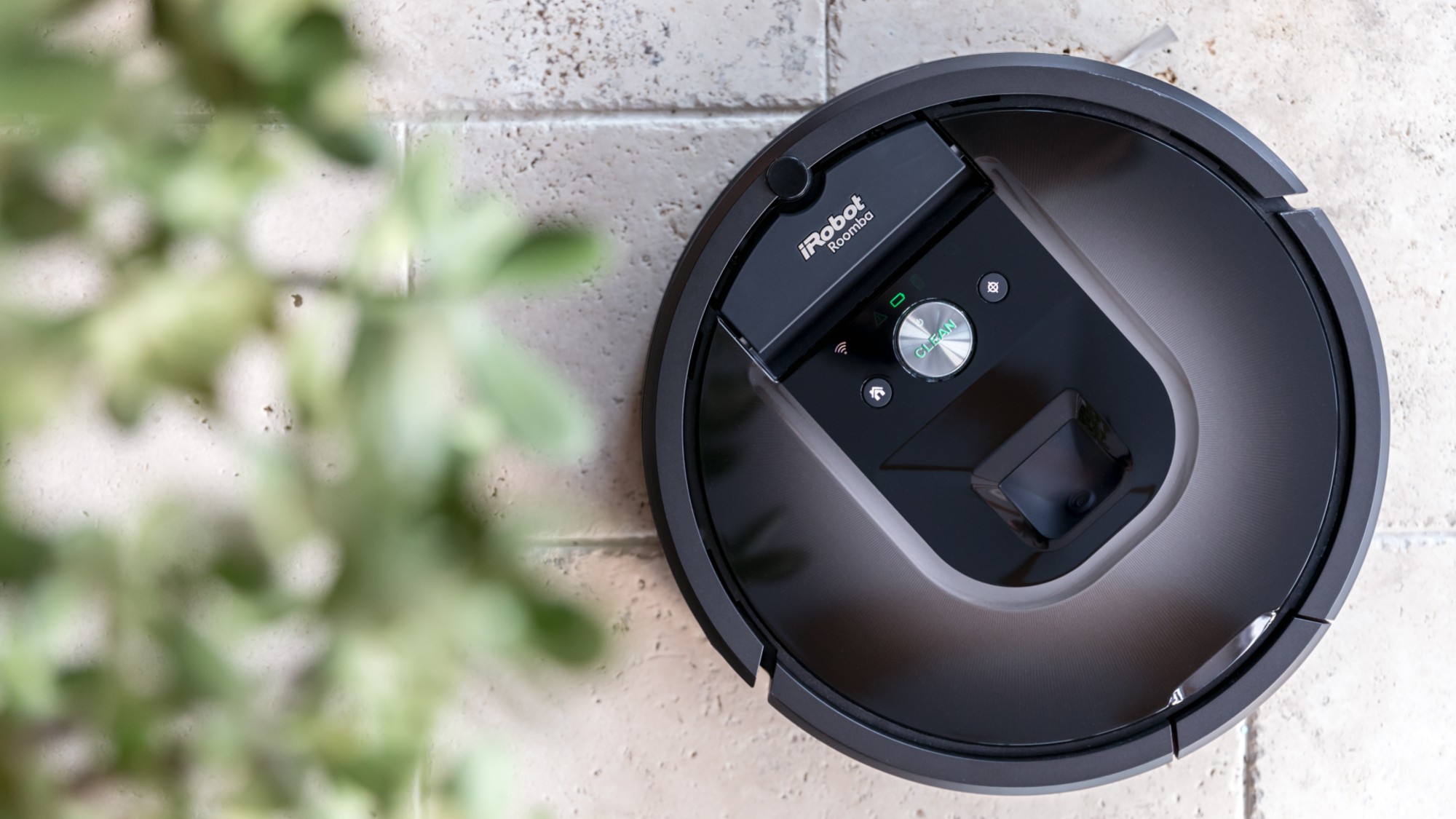The internet is being overrun by ads
Grabbing attention has never been more annoying


A free daily email with the biggest news stories of the day – and the best features from TheWeek.com
You are now subscribed
Your newsletter sign-up was successful
Anytime you online shop, stream a series or open up a mobile game, chances are you are bombarded with advertisements. From banners to pop-ups to mid-rolls, ads have become a guaranteed feature when using the internet. For many companies, ads are necessary to turn a profit, and user data is now more readily available than ever.
The adpocalypse
The prevalence of ads in every corner of the internet experience is a problem that has only become worse over time. Internet advertising revenues reached a record-high of $225 billion between 2022 and 2023, according to a report by the Interactive Advertising Bureau and PwC. "Advertising is undergoing a rapid transformation, driven by channels that offer addressable audiences at scale and personalized messaging in privacy-compliant ways," said the report. Along with more ads, the forms they take have also evolved. "Gone are the days of simple banner ads; even the sponsored Instagram posts invading my feed have started to feel quaint," said The Atlantic. "Now nothing is safe from brands trying to sell us stuff."
Much of this is due to the increased accessibility of user data to create more targeted ads. "A big part of why the internet has become an adpocalypse is that this kind of targeted advertising is no longer reserved for the tech giants," said The Atlantic. "In recent years, diet apps, fitness apps, period-tracking apps, transportation apps, dating apps, food-delivery apps and basically every other kind of app realized they have valuable personal information." In agreeing to a website or app's terms and conditions, many times you are agreeing to share data as well.
The Week
Escape your echo chamber. Get the facts behind the news, plus analysis from multiple perspectives.

Sign up for The Week's Free Newsletters
From our morning news briefing to a weekly Good News Newsletter, get the best of The Week delivered directly to your inbox.
From our morning news briefing to a weekly Good News Newsletter, get the best of The Week delivered directly to your inbox.
There is also a monetary factor in the rise of ads, especially when it comes to streaming services. "Over the last decade, as media companies raced to introduce streaming services to compete with Netflix, they prized subscriber counts above all else," said The New York Times. Putting ads into streaming services allowed the companies to introduce subscription tiers. In turn, more people sign up for the services opting for the cheapest plan with ads and eventually opting to pay extra to remove them.
Grasping for attention
Online, people's time and attention are the most valuable commodities. "Many people are always online, glaring into smartphones first thing in the morning and unwinding at night by streaming Netflix," said The Atlantic. "That has made every little pixel on our screens valuable to advertisers, giving them limitless opportunities to grab our extremely fractured attention." This has led advertisers to grow increasingly creative. "It's not enough to drive users to distraction with pop-up elements in the name of grabbing attention," said The Verge. "Some websites also use them in highly manipulative ways." Examples include fake playable ads in mobile games that force the user to open the app store or company website and "confirmshaming" which is a tactic that makes the user feel guilty for refusing to click on an ad.
While the myriad of ads is an attempt to harbor the attention of users, over time it may actually be causing a higher lack of attention and even annoyance. "The fact that pop-ups can spark outbursts of rage highlights the reputational damage they can cause over time," said The Verge. "And the more often people see them, the more they start to glaze over them, a phenomenon seen with those now-ubiquitous cookie notices, which most people scroll around, click to dismiss, accept without reading, or simply block."
A free daily email with the biggest news stories of the day – and the best features from TheWeek.com
Devika Rao has worked as a staff writer at The Week since 2022, covering science, the environment, climate and business. She previously worked as a policy associate for a nonprofit organization advocating for environmental action from a business perspective.
-
 Political cartoons for February 15
Political cartoons for February 15Cartoons Sunday's political cartoons include political ventriloquism, Europe in the middle, and more
-
 The broken water companies failing England and Wales
The broken water companies failing England and WalesExplainer With rising bills, deteriorating river health and a lack of investment, regulators face an uphill battle to stabilise the industry
-
 A thrilling foodie city in northern Japan
A thrilling foodie city in northern JapanThe Week Recommends The food scene here is ‘unspoilt’ and ‘fun’
-
 Can Europe regain its digital sovereignty?
Can Europe regain its digital sovereignty?Today’s Big Question EU is trying to reduce reliance on US Big Tech and cloud computing in face of hostile Donald Trump, but lack of comparable alternatives remains a worry
-
 Claude Code: Anthropic’s wildly popular AI coding app
Claude Code: Anthropic’s wildly popular AI coding appThe Explainer Engineers and noncoders alike are helping the app go viral
-
 TikTok finalizes deal creating US version
TikTok finalizes deal creating US versionSpeed Read The deal comes after tense back-and-forth negotiations
-
 Is social media over?
Is social media over?Today’s Big Question We may look back on 2025 as the moment social media jumped the shark
-
 Data centers could soon be orbiting in space
Data centers could soon be orbiting in spaceUnder the radar The AI revolution is going cosmic
-
 What is Roomba’s legacy after iRobot bankruptcy?
What is Roomba’s legacy after iRobot bankruptcy?In the Spotlight Tariffs and cheaper rivals have displaced the innovative robot company
-
 AI griefbots create a computerized afterlife
AI griefbots create a computerized afterlifeUnder the Radar Some say the machines help people mourn; others are skeptical
-
 The robot revolution
The robot revolutionFeature Advances in tech and AI are producing android machine workers. What will that mean for humans?
